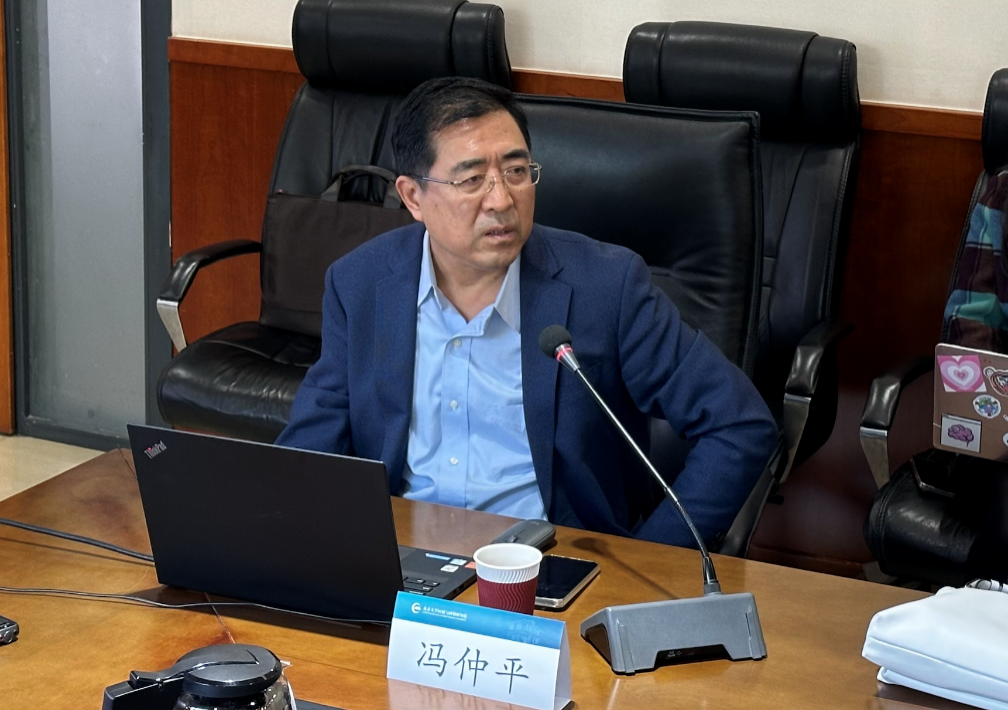
The 10th lecture in the Master Salon series hosted by the Institute of Area Studies, Peking University (PKUIAS), took place on October 24, 2024. The salon’s theme was “European Strategic Issues and Sino-European Relations.” The speaker was Feng Zhongping, director of the Institute of European Studies of the Chinese Academy of Social Sciences. The salon was moderated by Zhang Yongle, deputy director of PKUIAS. Duan Demin, associate professor of the School of Government, Peking University; Wu Qiaoling, professor at the School of Economics, Peking University; Luo Tianhong, associate professor at the School of International Studies, Renmin University of China; Zhang Lei, associate research fellow at the Institute of European Studies of Chinese Academy of Social Sciences; Yang Meng, assistant professor at the School of Foreign Languages, Peking University; and other scholars also participated in the discussion.
Feng Zhongping first introduced his understanding of area studies. He pointed out that, compared with traditional disciplines, area studies emphasizes national demand-oriented, interdisciplinary, holistic and organized research, focusing on the combination of basic research and applied research, the combination of existing disciplines and area studies disciplines, and the combination of individual research and collective research. He emphasized that research in area studies needs to take into account both theoretical approaches and practical issues, and cultivate both specialists and generalists.
In addressing the issue of European strategy, Feng Zhongping divided it into two core topics: European integration and European security. He pointed out that European integration had profoundly changed Europe’s political and economic landscape, enabling the free movement of capital, goods, services, and people across Europe. This has fostered lasting peace and stability and enhanced Europe’s international standing. However, in recent years, Euroscepticism and populism have risen within Europe, and the deepening and widening of European integration has faced significant resistance. The rise of populist parties reflects mainstream parties’ failure to effectively address globalization’s challenges, including economic challenges, migration, and identity crises.
On the issue of security, Feng Zhongping recalled Europe’s post-World War II efforts to address security issues through integration, particularly by integrating Germany into the framework, which achieved peace and stability in Europe. During the Cold War, Europe and the US collaborated to counter the Soviet threat by establishing NATO. This arrangement left Europe heavily reliant on NATO for defense, while the EU failed to effectively take on independent defense responsibilities due to its significant social welfare expenditures. After the Cold War, NATO’s eastward expansion contributed to Europe’s current security dilemma. With the outbreak of the Russia–Ukraine conflict, Europe’s security problems have re-accelerated and the confrontation between Russia and Europe has further intensified. Against this backdrop, whether Europe can assume its own defense has become an urgent issue.
Finally, Feng Zhongping talked about Sino-European relations. He pointed out that these relations were characterized by multi-dimensionality, economic dominance, and growing importance and complexity. Sino-European relations involve not only China’s overall interaction with the EU, but also bilateral interactions with individual European countries. He emphasized that although China and Europe were economically important trading partners, their relationship faced numerous challenges today. The Russia–Ukraine conflict, the influence of the US, and Europe’s changing perception of China have all brought complex variables to Sino-European relations. Feng Zhongping pointed out that Europe now increasingly views China as a technological and institutional competitor, and this shift could deepen tensions between the two sides.
In the future, Sino-European relations will continue to fluctuate between cooperation, competition and confrontation. Finding a balance in China–EU cooperation amid a complex international environment will be a key challenge for both sides in the coming years. Feng Zhongping expressed his belief that the change in China–EU relations is rooted in the resolution of cognitive differences. Europe needs to better understand that China’s development will benefit the resolution of global issues and contribute to world peace and stability.
During the discussion session, several participating experts engaged in-depth exchanges with Feng Zhongping on issues such as European security, the Russia–Ukraine conflict and China–EU relations. Luo Tianhong focused on the confrontation between Russia and Europe, Europe’s cognition of China, and the differences between Europe and the US. Duan Demin was concerned about how to avoid a new Cold War between China and the US and its negative impact on Sino-European relations. Yang Meng raised the issue of Muslim immigrants and Jewish issues in Europe. From the perspective of the development trend of the European Parliament, Zhang Lei made a supplementary analysis of the trend of the right shift in Europe. Feng Zhongping responded to each of these discussions.


